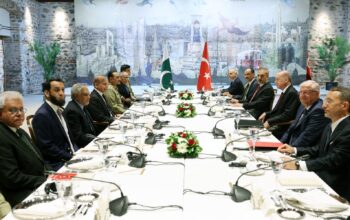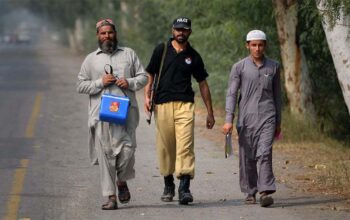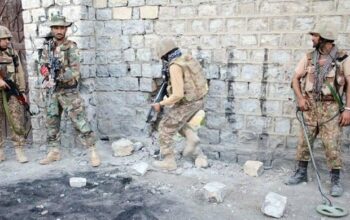By Staff Reporter
ISLAMABAD: The interim prime minister Anwaar-ul-Haq Kakar on Tuesday defended the country’s controversial program to repatriate millions of undocumented migrants, mostly Afghans, amid criticism from human rights groups and Western democracies.
In an op-ed piece for the British newspaper The Telegraph, Kakar said Pakistan was facing a “different magnitude” of the global challenge of mass migration, having hosted between 4 million and 5 million migrants over the last three to four decades.
“Many have no right to remain,” he wrote.
Kakar said Pakistan had generously accommodated the single largest caseload of refugees in the world, despite being a non-signatory to the 1951 Convention on Refugees and its 1967 Protocol.
He said Pakistan had tried to give those with no right to remain ample opportunity to leave voluntarily, but a significant number had refused to formalize their status, choosing instead to stay in the shadows.
Kakar said the undocumented migrants had imposed a huge socio-economic and security cost on Pakistan, working on the black market, paying no tax, and depressing wages.
“They are also susceptible to exploitation by the criminal underworld, with all its disturbing links to terrorist organizations operating in the region,” he said.
The prime minister cited the example of 16 Afghan nationals who had carried out suicide attacks inside Pakistan since August 2021, and 65 terrorists killed in encounters with security forces who were identified as Afghans.
“No responsible government can ignore such concerns,” he said. “Whenever we raised this with the interim Afghan government, they advised us to look inwards.”
He said Pakistan had decided to “put our house in order.”
Kakar said Pakistan’s repatriation program had attracted predictable criticism from those who did not understand the complex history of the problem or the extraordinary efforts that had been made to avoid forcible deportations.
“Misinformation and unfounded allegations abound, especially on social media,” he said. “In any such program, there will always be a small number of particularly difficult cases.”
He said Pakistan felt and continued to feel a deep responsibility for the welfare of all of those being repatriated, which is why all officials involved in the program were under strict orders to treat deportees with due respect and care.
He said Pakistan emphasized voluntary, safe, and dignified repatriation of individuals, along with their legally acquired assets, and not on deportation.
“Some 93 percent of those who have returned to Afghanistan have done so voluntarily,” he said. “Importantly, none of the 1.46 million Afghans who applied for proof of registration cards have been returned; nor have 800,000 or so individuals who hold Afghan citizen cards.”
Kakar said Pakistan was facing a new influx of refugees after the abrupt withdrawal of Western allies from Afghanistan in August 2021, and that hundreds of thousands of Afghan nationals had crossed the border, claiming their lives were in danger.
“We will not deport at-risk groups, such as musicians, journalists, and human rights activists,” he said. “We do however need help from other countries.”
He said only 59,033 of the new arrivals had been resettled outside Pakistan, while 42,068 awaited evacuations to the west. The rest had failed to put forward a convincing case to anyone for asylum and continued to stay in Pakistan illegally.
Copyright © 2021 Independent Pakistan | All rights reserved




